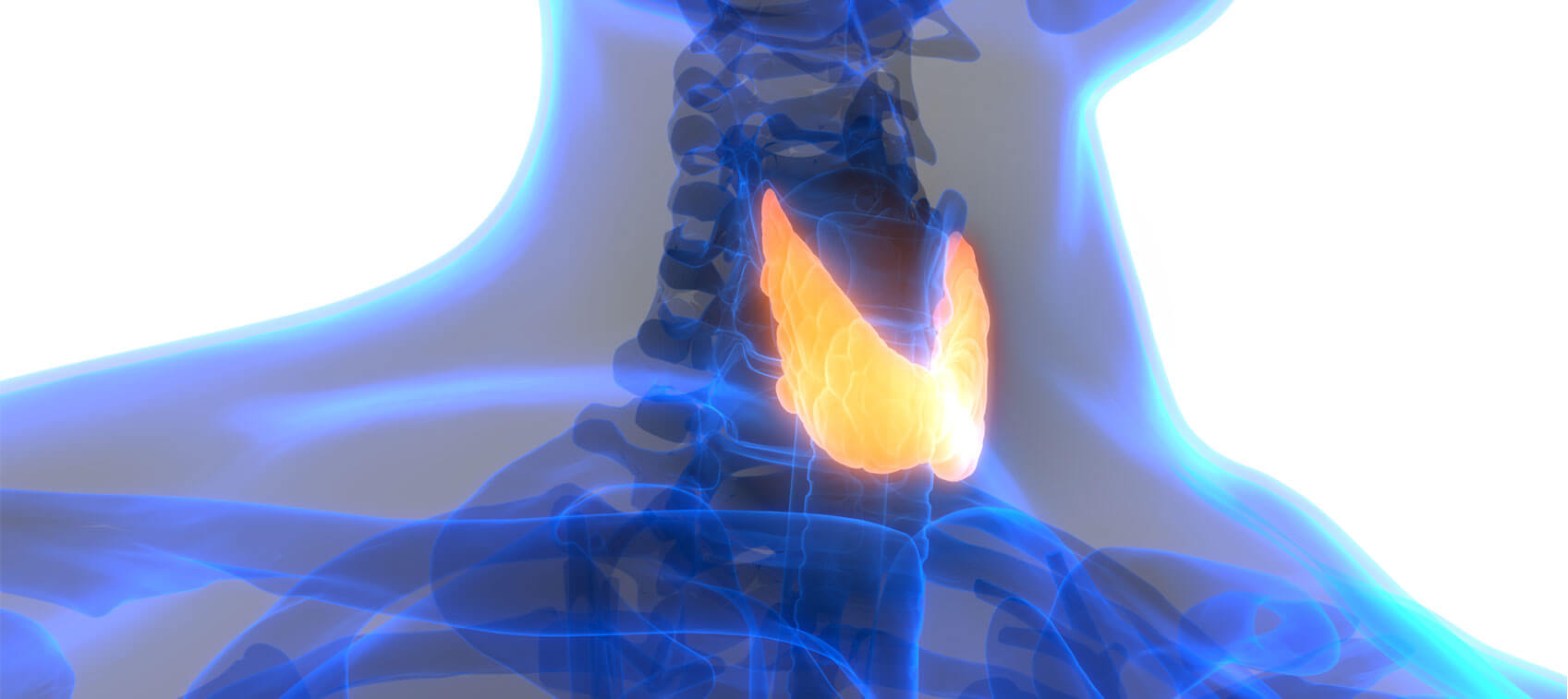
Endocrinologists treat a wide range of conditions involving the pituitary, adrenals, ovaries, testes, and other glands. The bulk of their patients, however, have blood sugar or thyroid disorders—and a surprising number have both.
Given that more than 30 million Americans have diabetes and a similar number have thyroid dysfunction, some overlap is inevitable. However, the links between these conditions are stronger than you may think.
Insulin, Blood Sugar & Diabetes
Insulin is the hormone that enables glucose (sugar) to enter the cells, where it is used for energy. When the pancreas doesn’t produce enough insulin, blood sugar remains elevated. This is the essence of type 1 diabetes.
For 90–95 percent of individuals with high blood sugar, however, plenty of insulin is being produced, but the cells are unresponsive or resistant to its signals. Insulin resistance is a defining characteristic of type 2 diabetes.
Regardless of the type, diabetes disrupts carbohydrate metabolism—and this is where the thyroid link fits in.
Thyroid Dysfunction: Hyper- or Hypo-
The thyroid gland produces hormones that regulate metabolism and energy utilization. Thyroid disorders have a number of underlying causes but fall into two general categories:
- Hyperthyroidism: Overproduction of thyroid hormones shifts metabolism into overdrive. Common symptoms are rapid or irregular heartbeat, nervousness, anxiety, weight loss, and insomnia. Untreated hyperthyroidism can lead to heart, vision, and bone problems.
- Hypothyroidism: An underactive thyroid, which is far more common and more easily treated, slows metabolism. Signs and symptoms include fatigue, lethargy, poor concentration, dry skin and hair, sensitivity to cold, weight gain, and depression.
Because thyroid hormones are involved in every aspect of metabolism, including insulin secretion and blood sugar control, thyroid dysfunction of either kind can impact blood sugar control and even raise your risk of developing diabetes.
Can Hyperthyroidism Cause High Blood Sugar?
Hyperthyroidism has long been associated with high blood sugar. It speeds up insulin clearance, so insulin is deactivated and eliminated faster than normal. As a result, less circulating insulin is available, and blood sugar is chronically elevated.
An excess of thyroid hormones also signals the production of more glucose in the liver and its absorption in the gut. All told, hyperthyroidism decreases insulin sensitivity and ups your odds of developing metabolic syndrome or type 2 diabetes.
Can Hypothyroidism Cause High Blood Sugar?
An underactive thyroid can also elevate blood sugar. Hypothyroidism contributes to weight gain, and obesity is the most significant risk factor for type 2 diabetes. It also saps energy and motivation, which makes exercise more problematic and further contributes to weight gain.
Weight aside, hypothyroidism is independently associated with insulin resistance and diabetes. Dutch researchers following 8,492 adults for nearly eight years found that those with low thyroid function were more likely to be diagnosed with diabetes. Study participants who had prediabetes (high-normal blood sugars) and any degree of hypothyroidism had a 35 percent increased risk.
What About Thyroid & Low Blood Sugar?
Although low blood sugar (hypoglycemia) is most common in people who are on insulin or oral diabetes drugs that increase insulin output, thyroid problems, especially hypothyroidism, can also trigger episodes of low blood sugar.
Just as an overactive thyroid hastens insulin clearance, an underactive gland may slow its breakdown, allowing insulin to remain active for longer and causing blood sugar to fall below normal levels. Reduced thyroid hormone production also slows glucose synthesis in the liver, gastric emptying, and intestinal absorption of sugar into the bloodstream.
The result? Hypoglycemia, which can make you feel jittery, irritable, and ravenous for sugar and other fast-burning carbohydrates.
The Autoimmune Connection
Another link between thyroid dysfunction and diabetes is autoimmunity, which occurs when the immune system goes rogue and attacks the body’s own tissues. Two thyroid disorders and one type of diabetes fall into this category—and If you have one autoimmune disease, you are more likely to develop another.
- Hashimoto’s disease: Also called autoimmune thyroiditis, Hashimoto’s is the leading cause of hypothyroidism in the United States. The immune system creates antibodies that attack the thyroid gland and interfere with the production of thyroid hormones.
- Graves’ disease: This autoimmune disease also targets the thyroid, but it increases, rather than suppresses, hormone synthesis. It is a common cause of hyperthyroidism.
- Type 1 diabetes: Type 1 diabetes is caused by an autoimmune reaction that destroys insulin-producing cells in the pancreas. Nearly one in three people with type 1 diabetes will eventually develop an autoimmune thyroid disease, most often Hashimoto’s but in some cases Graves’ disease.
A Caveat About Thyroid Testing
Left untreated, both hypothyroidism and hyperthyroidism can worsen blood sugar management and alter medication requirements. Therefore, individuals with diabetes should regularly monitor their thyroid function—and everyone with a thyroid disorder should be periodically screened for diabetes.
There’s one caveat about thyroid testing. If your TSH (thyroid stimulating hormone) test results come back within the normal range but you have symptoms of hypothyroidism, request additional testing for total and free T3, T4, and thyroid antibodies.
Subclinical hypothyroidism (high-normal or mildly elevated TSH with a normal T4 level) causes symptoms in many patients—especially women—and may increase the risk of diabetic complications. Yet many physicians rely solely on TSH results and refuse to dig deeper. Consequently, hypothyroidism often goes undiagnosed and untreated.
Treatment Considerations
- Blood sugar can be controlled with a safe, natural program that includes weight loss, diet, exercise, and targeted nutritional supplements.
- Hyperthyroidism is a serious condition that must be closely monitored and treated with medications to shrink the gland or curb its activity or with surgical removal.
- Synthroid (levothyroxine), a synthetic form of one thyroid hormone (T4) is the most popular drug for hypothyroidism. However, many patients do much better on natural thyroid (Armour thyroid, Westhroid, NatureThroid), as it contains the whole gamut of thyroid hormones.
- Nutrients that support thyroid function include selenium 200 mcg, iodine 150 mcg, magnesium 400–500 mg, and zinc 30 mg. Look for these levels in a multivitamin or supplement individually.


